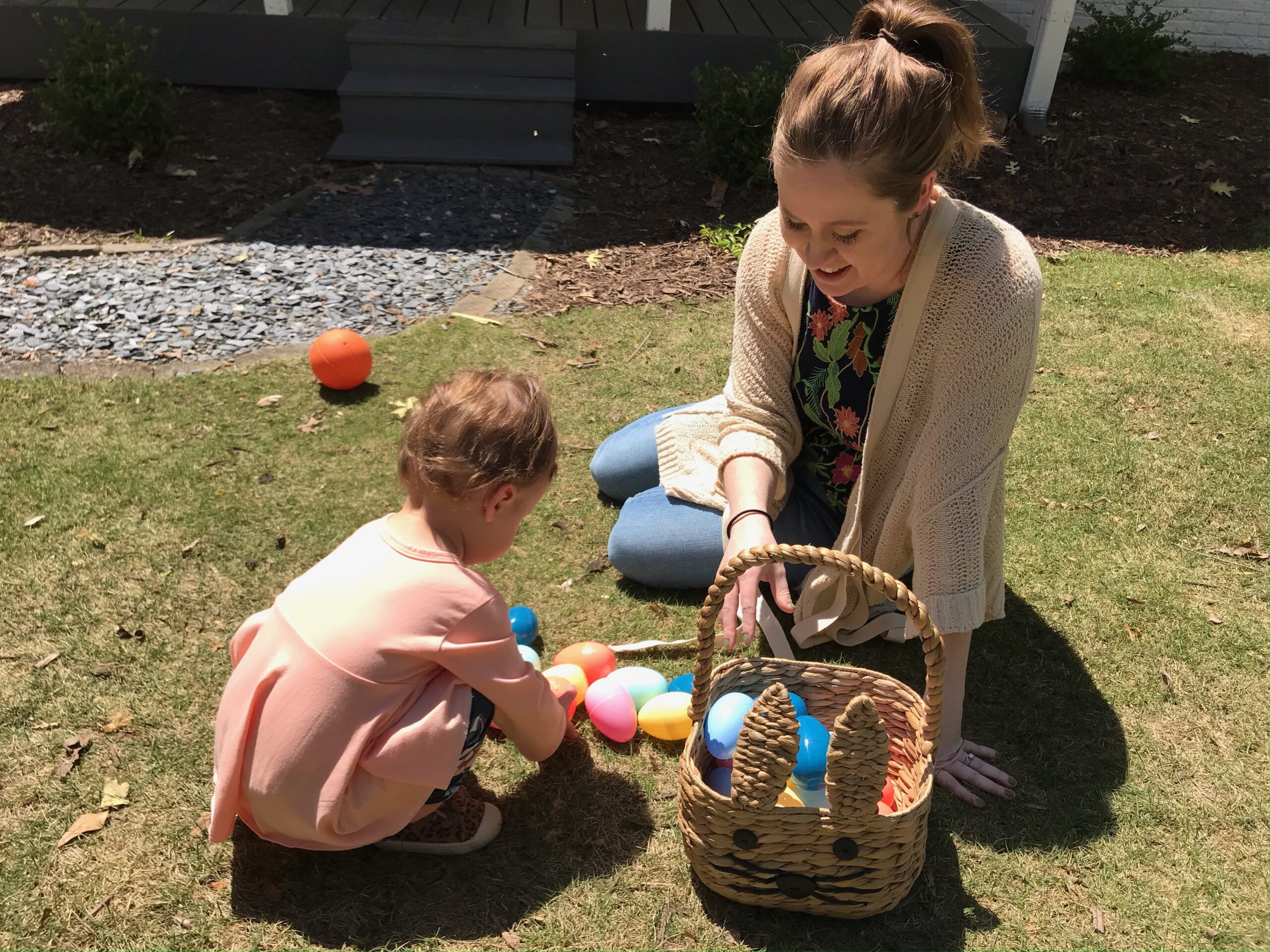
When training to become a therapist, you’re taught a concept called “Tabula rasa.” The idea is that you, as the therapist, have to be a blank slate in the therapy room. There is plenty of debate amongst our community about when “self-disclosure” is appropriate in therapy. Personally, a lot of my perspectives on the topic changed when I became a mom. I have two children – an almost 3 year old and a 6 month old. Even if I wanted to keep them out of the therapy room, it would be impossible. Because kids are messy. They don’t fit cleanly into theories or concepts and they have a way of touching parts of our lives that we once deemed separate.
Since returning to work after my second maternity leave, I’ve had to cancel, reschedule, or “move to telehealth” more sessions than in my entire prior career combined (4x). I’ve gotten mid-day calls from the daycare that I need to be there within an hour. I questioned how much I should tell my patients that a kid at home was puking, or coughing, or had pink eye. And I’d be lying if I said there weren’t days where I sat in session and found myself worrying about my kids while trying to stay present. I don’t have the luxury of being a “tabula rasa” because my kids have scribbled all over it
In recent years the concept of “matrescence” has become more mainstream. Like adolescence, matrescence is the process of becoming. It’s becoming a mother – a new version of yourself. It’s the imposter syndrome moms feel when they’re wondering if everyone else has figured it out better than they have. But really, all of this is expected and predictable – because no one has it figured out and every mom starts off not knowing what to do. Every mom gets that first moment with their child where they’re acutely aware that while they’ve been given the greatest gift, they’re also now vulnerable to the greatest risk imaginable. Matrescence is all of the moments where you push on your new form, mentally and physically, trying to understand your new life and possibly your new body. It’s reconciling years of existence before motherhood while simultaneously forgetting what it was like not to have been one.
It’s impossible to think about anxiety treatment and not think about parents. Underlying all anxiety is uncertainty, and uncertainty is insidiously hidden in every single moment of parenting. Do I let her cry? Can he handle this? What about the other kids in the class? What if it’s too challenging? Not challenging enough? Is she getting enough play? Is he getting enough structure? What if she gets sick? For me, matrescence has been about my own anxiety management. How do I trust my kids to an untrustworthy world?
And recent data – and the dozens of conversations I have with moms every week – tells us that I’m not the only one who feels this tension. 66% of working parents meet criteria for parental burnout. And to add insult to injury, working moms generally earn as much as 18% less than their peers. So when we’re not feeling inadequate as mothers, we’re often feeling inadequate as employees too. Not to mention the lack of support for affordable child care, accessible health insurance, and – for many – non-existent family leave policies – it’s not difficult to see why we have a maternal mental health crisis.
Motherhood is also an endless paradox. It’s the ability to feel like you’re doing everything only to look around and feel like nothing is accomplished. It’s pulling your hair out wishing they would show some independence and then feeling terrified when they do. It’s constantly wishing you could be two places at once. It’s knowing that the role of mother is your favorite thing about yourself and simultaneously feeling suffocated by the title. And just like young therapists, the world also tells us as mothers that we should be a “tabula rasa.” We exist to meet the needs of others and we better not bring our own mess to the table. We don’t show up as individuals, we are there to reflect back. So when our kids have other plans – which they always do – it’s easy to feel like you’re failing. As mothers, this is the belief that keeps us feeling like we can’t reach the surface and that we’re not enough. My hope is that by allowing myself to take up space as a mom – as inconvenient, sticky, and impractical as that is sometimes – I can help give permission to others.
You deserve to take up space all on your own and what you say, feel, think, and experience matters deeply. There’s room for you to thrive and also room for you to be messy. On your own path through matrescence, I encourage you to remember that there is room for experimentation and room to course correct. This process is full of mental challenges and your biggest tool is self-compassion. Typically I find myself shying away from the term “self-care” because it always seems to elicit feelings of bath bombs and avoidance and as an anxiety therapist I cringe at the thought of escaping the yucky stuff. But at its root, “self-care” is really about learning to parent yourself and doing the hard things that keep you together: holding yourself accountable to find room for movement and an agreeable bed time, giving space in your calendar so you can do things that feel meaningful, or making sure to eat. All of the things I find myself prioritizing for my kids are often the things that get dropped first for myself and more than ever, moms need to learn to parent themselves first.
Any advice or therapeutic direction I can offer on the subject is a pill I will have to swallow myself first because no academic knowledge is enough to rescue a mom from worry. But my first recommendation is to let go of expectation. In CBT, we often refer to this as the cognitive distortion of “should.” There’s not one way to mom – so give yourself flexibility to let your way look different. Second, know that good moms feel burned out. Feeling drained is a sign you need to do less, not more. And while “doing less” can absolutely feel like a privilege that isn’t afforded to moms, it’s okay to cut corners to give yourself breathing room. And if that means your kid goes to bed a little dirtier because bath time ends up not making the cut, so be it. Last, I wouldn’t be a very good anxiety specialist if I didn’t remind everyone I speak to that you have to embrace uncertainty. And while that seems like a challenge, it also brings a kind of freedom to be in the moment. Uncertainty is risk, but it’s also unexpected moments of joy, surprise hugs, and seeing your kids triumph.
So whether you’re in the thick of potty training or you’re navigating life as an empty nester – embrace the uncertain messiness of motherhood and be kind to yourself in
the process. You’re right where you should be.
Face your fears. Embrace uncertainty. Seek out meaningful experiences.
Marti Munford, LPC
Marti Munford, LPC specializes in the assessment and treatment of OCD and anxiety disorders, pediatric anxiety, postpartum mental health, and parenting the anxious child

